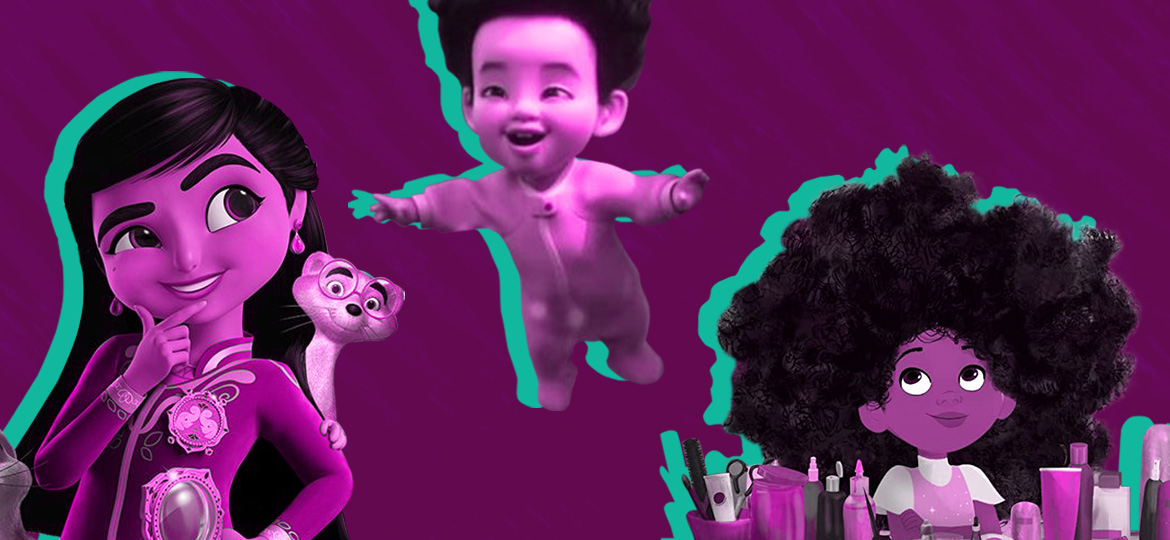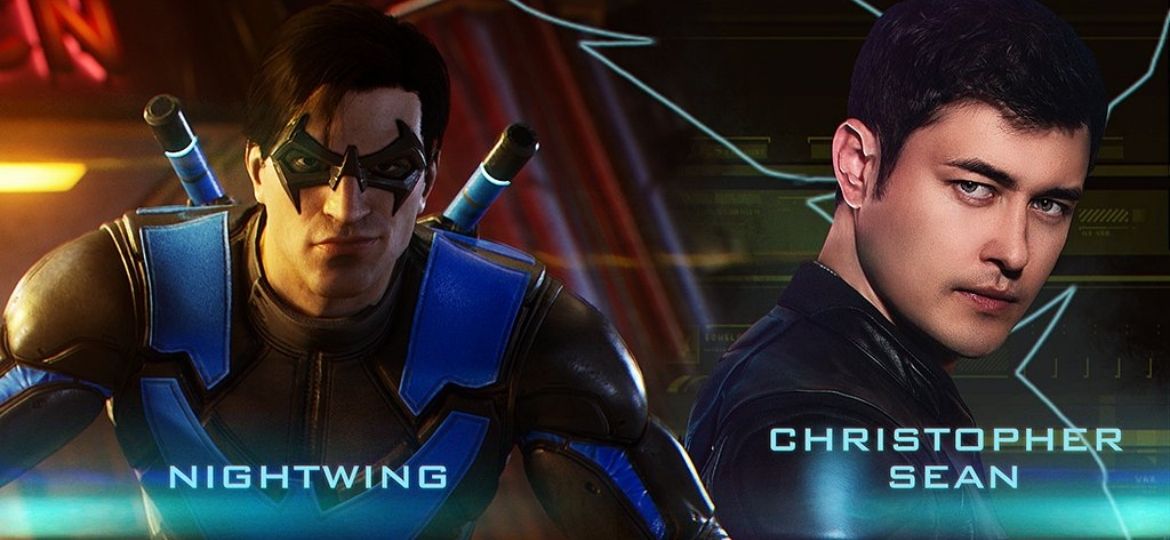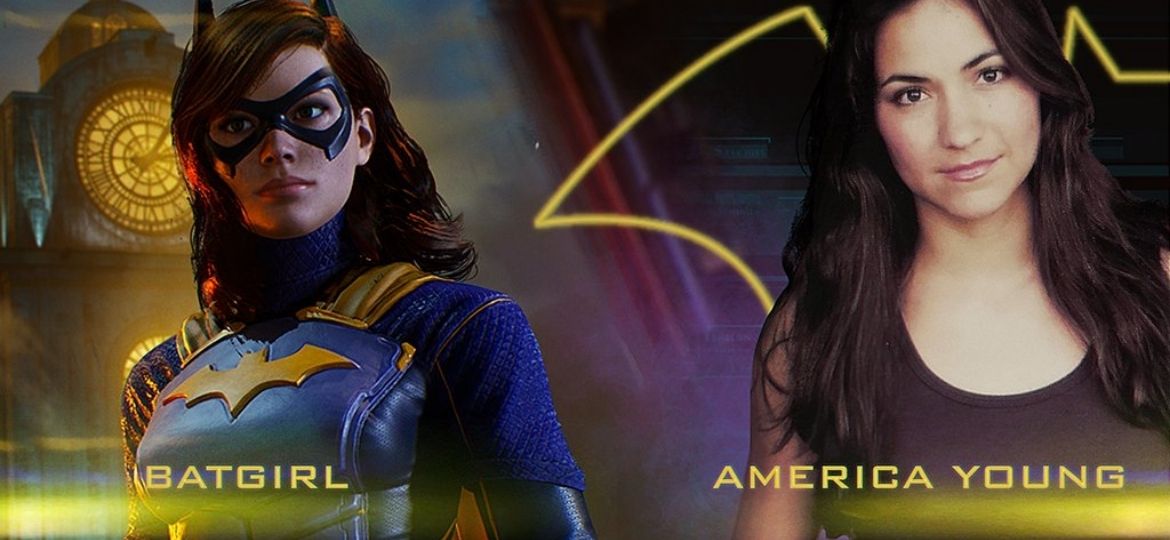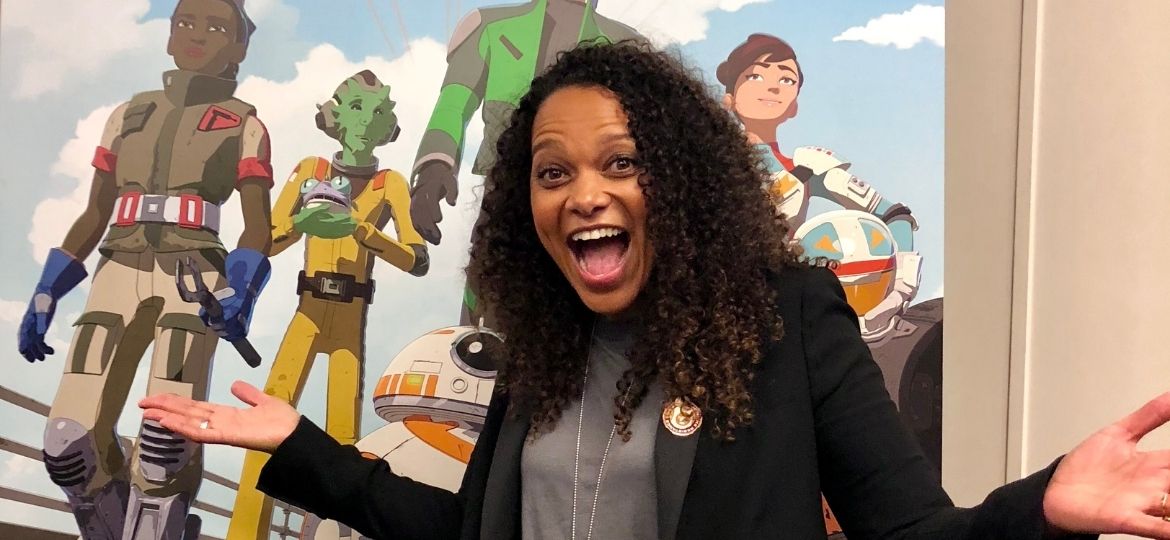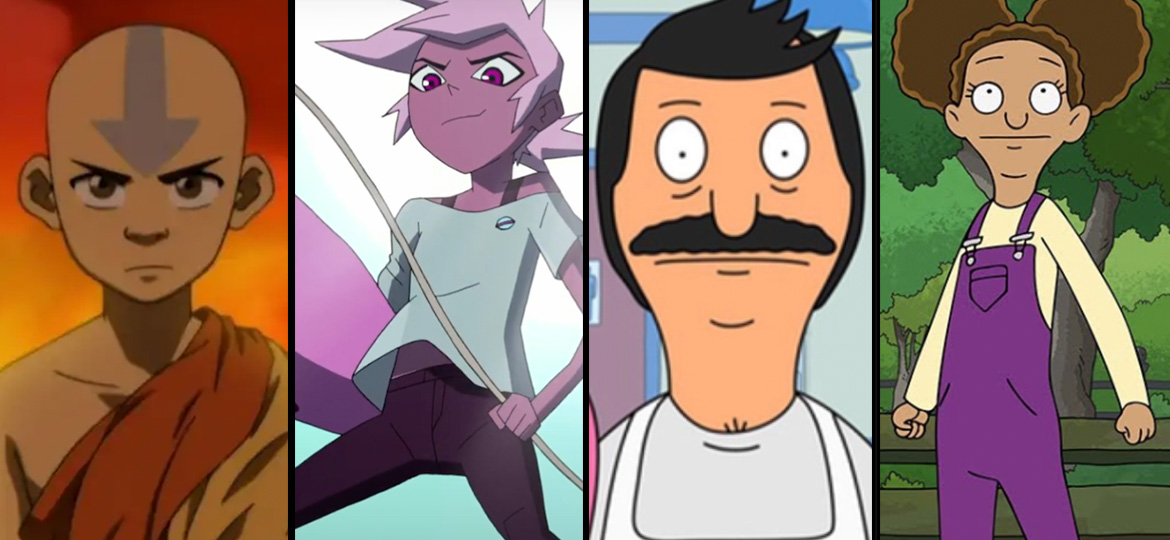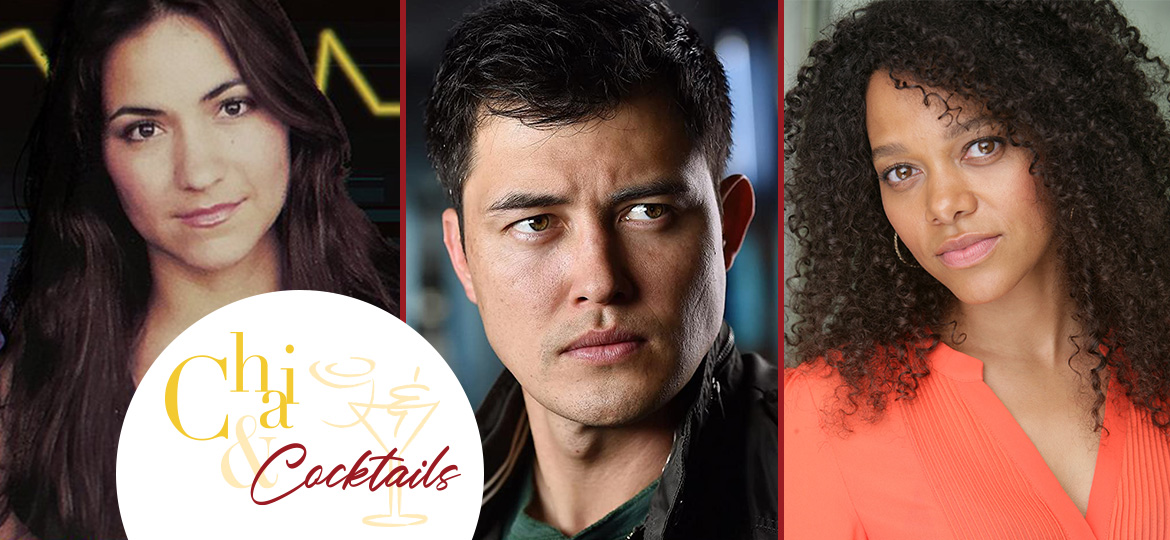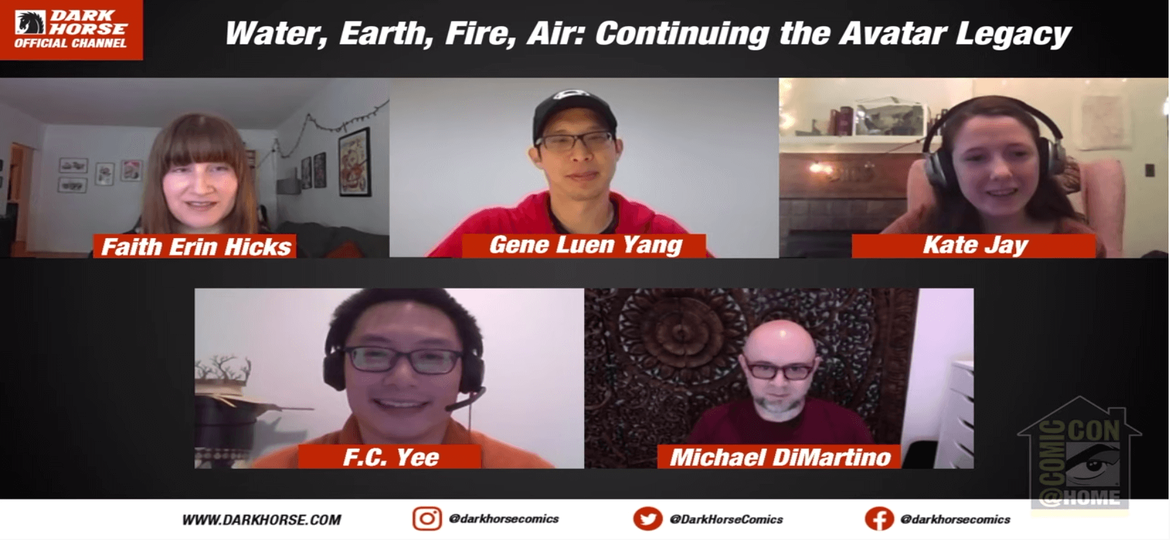The animation industry has definitely made strides in the last few years when it comes to diversity and inclusion. TV shows and films like Coco, She Ra and the Princesses of Power, The Bravest Knight, Steven Universe, Glitch Techs, Moana, The Casagrandes, and Craig of the Creek, to name a few, have shown that on-screen representation is both doable and viable.
However, even with these strides, creators of color still aren’t given the greenlight to tell their own stories.
At times, they seem to be sidelined in favor of white showrunners, as we see in a series like Mira, Royal Detective. Is this show diverse? Yes, completely. But it’s also created by a non-POC woman. And it begets the question, why have our stories always been told by others?
Although, we don’t need statistics to tell us that there’s a lack of representation behind the scenes, it’s pretty obvious by the stories that are currently told in the animation profession. According to last year’s USC Annenberg report, only 3% of animated film directors are women — and just 1% are women of color. Not surprisingly, a lot of men have historically been behind your favorite cartoon princess.
There’s a Huge Lack of WOC in Animation
From the same report, across 52 of the top animated films from 2014-2018, the gender ratio of males to females across 9 key roles or unit head position was 8.5 to 1. Below are some infographics directly from the report to provide a better picture.
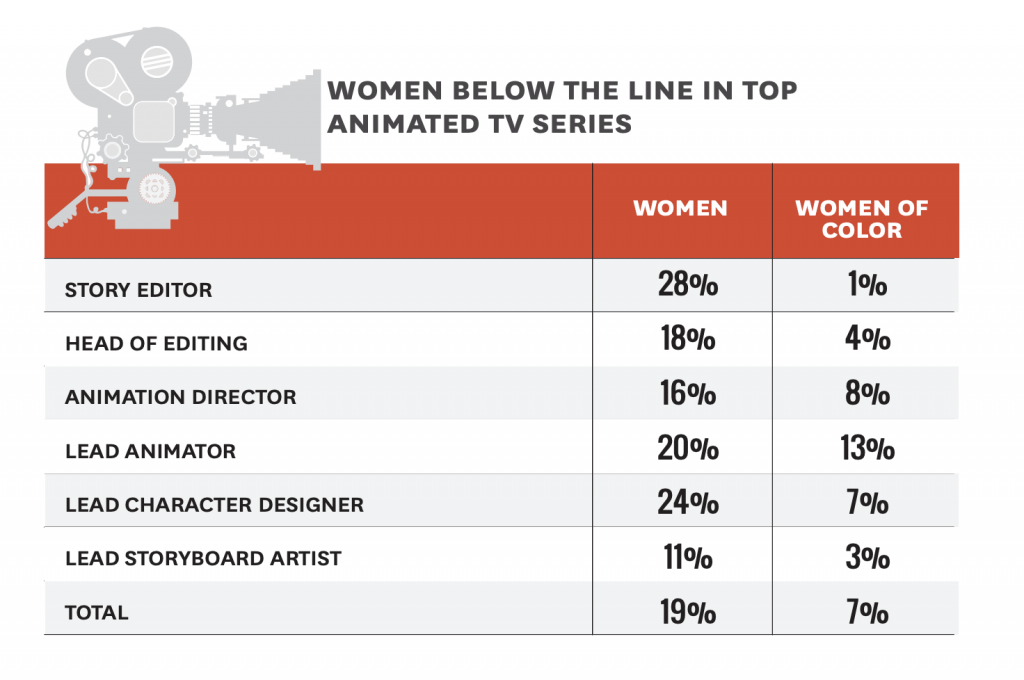
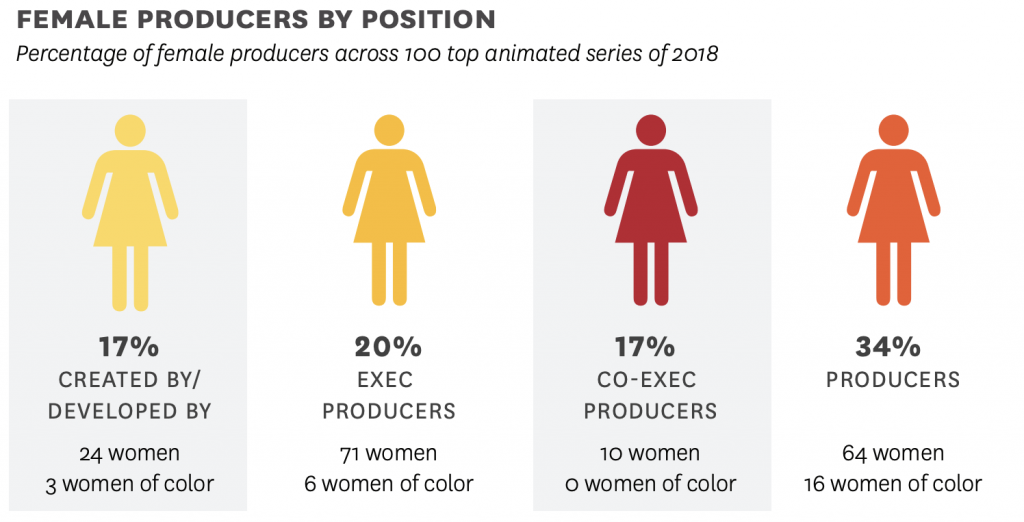
Excerpt from the USC Annenberg report “Increasing Inclusion in Animation”.
An Open Letter to the Animation Profession
Black N’ Animated is an animation podcast to educate, inform, and inspire Black artists pursuing careers in animation. They wrote an open letter in June to the animation studios. In the letter, they outlined the actual work that needs to be done to seriously support the Black animation community, stating:
“While the ultimate goal is to employ more Black professionals, it is not enough. Companies must also do the work to analyze their spaces and reform them so that they are truly safe and inclusive; not just for Black employees, but for all Indigenous, LGBTQIA+, disabled, and otherwise marginalized employees of color. We recognize that this important work will take time and involve uncomfortable conversations and realizations. We support our colleagues as we all move forward on the road to a healthier, inclusive industry.”
The letter calls on studios to take concrete action:
- An independent audit on the Black experience in the animation industry
- Internal investigations into racial discrimination that would hold offenders accountable
- Sensitivity training on anti-Black prejudices within the entire company
- Commitment to hiring more Black professionals at all levels
- Training and mentoring to ensure Black professional success and advancement
- Outreach to underprivileged communities, promoting animation as a viable career path
The letter concludes with a list of resources to better be an ally and support the Black community. Along with the Black N’ Animated team, several members from other organizations signed the letter in support, such as Black Woman Animate, Brick Foundation, Latinx in Animation, and Women in Animation.
Still a Long Road Ahead
Although animation has made strides, there’s still plenty of work to be done. But how can we actually change things?
For starters, things have to change on all levels. More diversity at the top level. The gatekeepers, the ones that are making the actual decisions.
And things like this new CBS initiative are great, but at the end of the day, diversity initiates have been around for decades. It’s also not enough to just open up the writers to more diverse voices. Pitches need to come from more POCs. It doesn’t help if the people running or creating these shows aren’t the ones where the actual stories come from.
But Moving in the Right Direction
Not all hope is lost. Last year, Disney announced that three filmmakers of color will develop animated features for the studio. This effort in inclusion and diversity behind the scenes at the directorial level is a step in the right direction.
Last year, Bobby Rubio became the first Filipino-American director to helm a Pixar animated short. His directorial debut, Float, tells the story of a father who discovers his young son has the ability to float. It was inspired by Rubio’s own son, who was diagnosed with autism.
In an interview with Variety, Rubio discusses how his initial pitches featured a Caucasian father and son stating:
A co-worker saw the cover and said, ‘Bobby, this is your story. The character should be Filipino American.’ I thought, does anyone want to see a Filipino-American character? I had this unconscious bias.
Float is also the first Pixar short to feature a Filipino-American character.
Hair Love Getting More Hollywood Love
Recently, Matthew Cherry, one of the directors behind the Oscar-winning animated short film Hair Love signed a first-look deal with Warner Bros TV. And now the short is also being turned into an animated series by HBO Max.
In an interview with Animation From Every Angle, when discussing the impact of the short, Cherry stated:
“Media is so powerful and when you grow up seeing television shows and magazine covers and billboards of supposedly the most beautiful people in the world but none of them look like you, that can do a lot to your self-confidence.”
And studios like D’ART Shtajio, Japan’s first major anime studio created by Black animators, make it possible to tell more Black stories. The company, founded by Arthell and Darnell Isom, two Black background artists, and animator Henry Thurlow, has worked on anime projects like Tephlon Funk, Indigo Ignited, and Xogenasys, and most recently an anime-inspired music video for The Weekend.
When all else fails, just hire us to do the work.
In the coming weeks, we’ll further highlight diversity in voice talent and in tabletop game design, as well.
In the meantime, join us for a discussion on Diversity and Voice Talent on our first virtual Chai & Cocktails event. Star Wars Resistance actress Suzie McGrath (Tam Ryvora) will join us for this chat! Learn more here.

